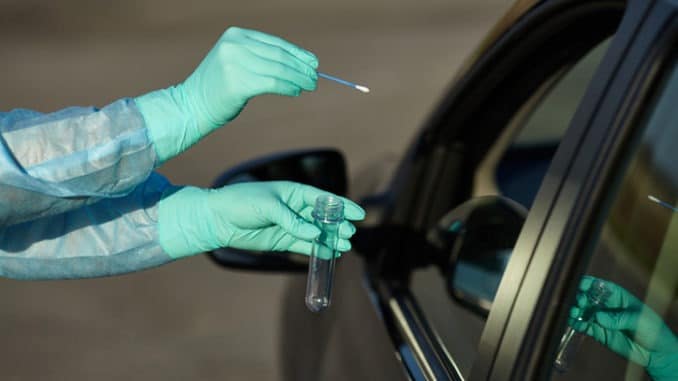
As reported by BBC news, nearly 100,000 people are catching coronavirus every day in England, a major analysis suggests
The study, by Imperial College London, says the pace of the epidemic is accelerating and estimates the number of people infected is now doubling every nine days. The authors say we are at a ‘critical stage’ and ‘something has to change’.
Communities secretary Robert Jenrick told BBC Breakfast the government wanted to ‘try to avoid having a national blanket approach’ to coronavirus restrictions in England.
“We don’t have a plan, today, to do a full national lockdown,” he said, adding such a move “would be destructive to people’s lives and livelihoods and broader health and wellbeing”.
A national ‘firebreak’ lockdown is ongoing in Wales, while Northern Ireland has tightened restrictions, including closing schools, and Scotland will later confirm details of a new tiered alert system.
Experts are warning that we are fast approaching the peak in infections seen in the spring. The React-1 study is highly influential because it is the most up-to-date assessment of COVID-19 in the country, with the last swabs taken only on Sunday and nearly 86,000 volunteers taking part. A further 24,701 new coronavirus cases were reported on Thursday – but the Imperial College study randomly tests asymptomatic people to estimate the number of overall new infections.
It shows cases are rising in every age group and in every region of England. While cases are currently highest in the North, infections are surging more rapidly in the South.
The study compared the latest swabs collected between 16 and 25 October with the last round of swabs, between 18 September and 5 October. It found that, on average, every infected person in London was passing on the virus to nearly three other people – the highest estimated rate in England.
And it also suggests:
- The number of people infected has more than doubled since the last round, with one in every 78 people now testing positive.
- The hardest hit area is Yorkshire and the Humber, where one in every 37 people has the virus, followed by the North West region.
- Three times as many people aged 55-64 are infected, compared with the previous month’s study, and twice as many over 65s.
- The pace of the epidemic has accelerated with the R number – the number of people each infected person passes the virus on to on average – increasing from 1.15 to 1.56.
- Overall, the number of people infected is doubling every nine days.
- The South East, South West, east of England and London all have an R above 2.0.
- Cases are spiking in young people in the South West in a repeat of the pattern seen in northern England just over a month ago.
- There are 96,000 people catching the virus every day.
Prof Steven Riley, one of the authors, told BBC Radio 4’s Today programme the government may need to “think about changing the approach” in England.
“I think lockdown as a phrase is inhibiting us a little bit,” he said. “I think what our study shows is there would be genuine benefits to some kind of national policy in that we could prevent the pattern in the South turning into the current pattern in the North and bring about a reversal in the North as quickly as possible.”
He added that ‘sooner is better’ when it comes to making a decision on national restrictions.
Dr Mike Tildesley, professor of infectious disease modelling at the University of Warwick and adviser to the government, told Today there needed to be ‘urgent… rapid action’ to avoid a further rise in infections next month.
He described the current regional approach as ‘firefighting’ and said some form of national measure in England would help prevent areas moving up into higher restrictions.
“If we don’t take urgent action, we’re most likely to see that as we’re approaching the festive period we’re probably going to be in at least tier two pretty much everywhere in the country,” he said.
But World Health Organization envoy Prof David Nabarro said regional restrictions in the North have slowed the spread of COVID-19.
He said England has “apparently been able to slow the spread in some parts of the North of the country through very effective local action”.


Be the first to comment